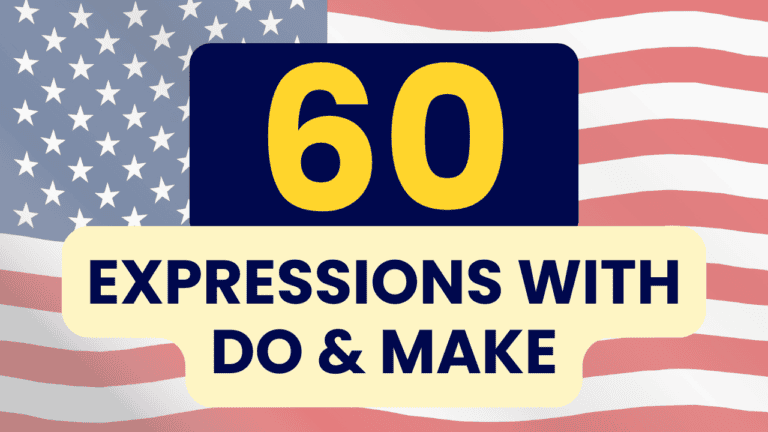
Join Complete English learning Program
Today we’ll learn about money words, money collocations, and money idioms. Make sure to download the lesson guide to review all of today’s vocabulary and expressions.
First we’ll learn 10 other words for money, including some slang, then some collocations (words commonly used together with money), and finally some idioms and expressions with money.
Money words
Another word for money is cash. This is typically used for physical money – bills and coins – in contrast to a credit/debit card. But in the business world there are also terms like cash reserves and cash flow that refer to how much money the business has and how money moves through the business.

You might also hear the word change referring to money. Change can refer specifically to coins – for example, someone on the street might ask if you can spare any change, meaning can you give them any extra coins you have. Change also refers to the money you receive back when you pay too much. If something costs $15 and you give the store a $20 bill, you’ll receive $5 back, that $5 is the change from your purchase.
In American English we’ve got the word bucks, which is an informal word for dollars. For example, I bought this jacket for 30 bucks.
Another thing you’ll often see when talking about larger amounts is K meaning thousand. You might see a job offering a salary of 60K, meaning 60 thousand dollars per year. Or a house that costs 400K, meaning 400 thousand dollars.
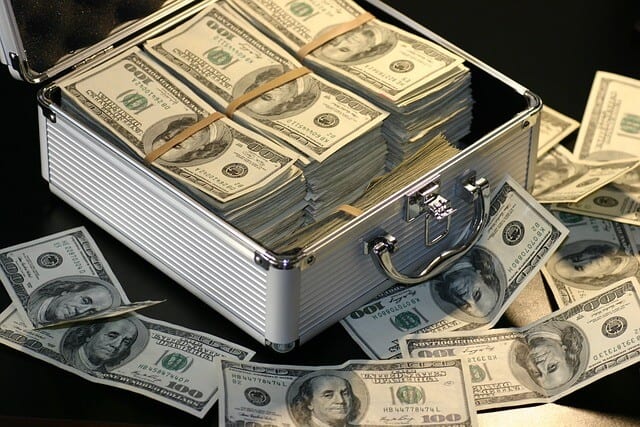
One more formal word for money is funds – you’ll often see this in the world of business, government, and non-profit organizations.
When talking about an individual person’s money, you could refer to their wealth, their total accumulation of money and possessions.
A couple very informal slang words for money are dough and moolah – if you hear about someone who spent $500 on a fancy dinner, you could say “Wow, that’s a lotta moolah for one meal.”
Or if someone is very rich, we could say they are “rolling in dough” – have so much money that they could practically lie down and roll around in it.
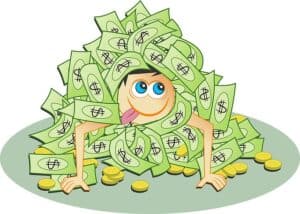
Next we’ve got the word fortune, and this means a LOT of money. Someone who wins the lottery would win a fortune. Here in the U.S. lots of people spend a fortune on college education, which can be really expensive.
And finally we’ve got the words peanuts and a pittance which both mean very little money. You could say my very first job paid peanuts, it’s an informal way to say the salary was extremely low.
Money collocations
Let’s look at collocations – these are words that are commonly used together with the word money in English.
You earn money or make money from your job or work. These are the two verbs we use for receiving money from your efforts.
Of course we spend money – use it to buy things. Some things are worth a lot of money, meaning they’re expensive because they have a lot of value.
We can deposit money in the bank (meaning put it into the bank account) or withdraw money (meaning take it out).
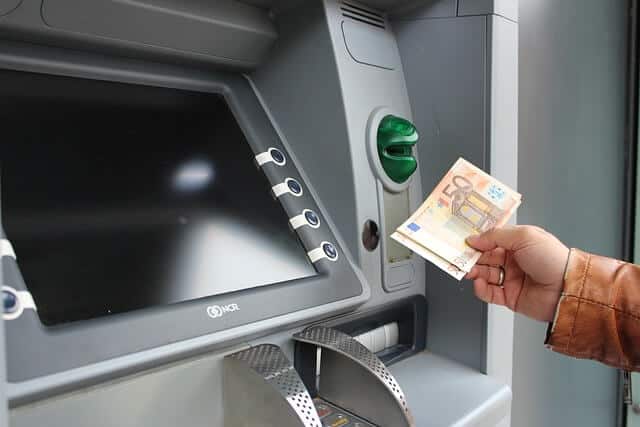
In the business world, you’ll hear about allocating money, that means deciding how money is distributed among different places or projects. I think everyone should learn how to manage their money, meaning use it in a carefully considered way.
A smart thing to do is to save money, keep it for a long time. You might also set aside money, meaning reserve it for a specific purpose, like buying a car or paying for a wedding. You can also invest money by putting it in the stock market and hoping the businesses in the economy grow over time.
Be careful not to squander/waste your money, meaning to spend it in a way that’s just not productive, almost like throwing it away.
If you spend too much, then you might need to stretch your money/paycheck, meaning to try to make a small amount last a long time. You could also say that money is tight, meaning you only have a little or just enough, no extra.

But if you do have some extra, you can donate money – give it away – to a charity or a good cause.
Money idioms
We’ll wrap up this lesson with a few idioms and expressions using the word money.
If someone is VERY rich, we can say that person has money to burn or that money is no object for him or her.
But for most of us, money doesn’t grow on trees, meaning it’s not so easily available; we have to work hard for it.
When something provides a lot of value for the price, we say you get your money’s worth. If there’s a pair of shoes that’s a bit expensive, but they last for 10 years, that would be an example of getting your money’s worth.
The opposite is pouring money down the drain, that’s a funny expression for spending money that doesn’t get you any real benefit. If a business pays for expensive advertising on TV but gets very few customers from it, that’s pouring money down the drain.
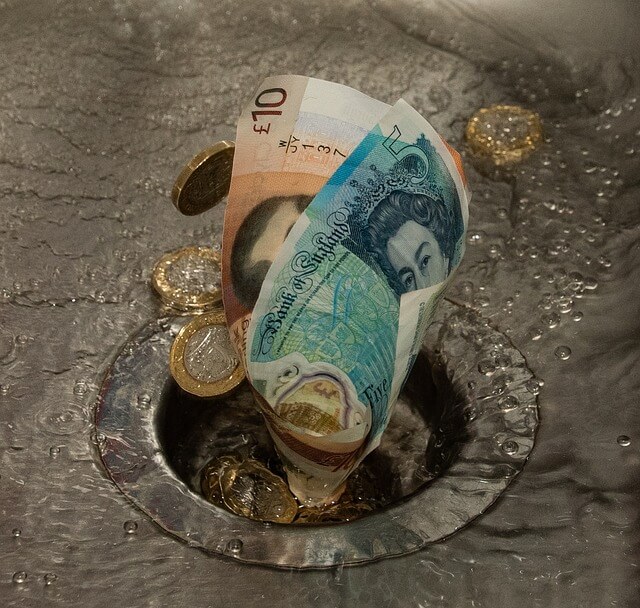
Finally we’ve got the phrase right on the money, and this actually isn’t related to money at all. This expression means to be perfectly correct or perfectly accurate. For example, I read an article about a complicated political situation and I think the author’s analysis is right on the money, meaning it’s accurate, it’s correct.
Quiz: Money Words & Phrases
Make sure to download the lesson PDF + quiz to review everything and take a quiz on these money words, collocations, and idioms!
Many of my students find that they really get their money’s worth from my courses – each one provides a lot of value for the price.
You can click here to see all the courses available, or join them all to get a 50% discount – that’s a fantastic way to improve your English fluency without spending a fortune!









